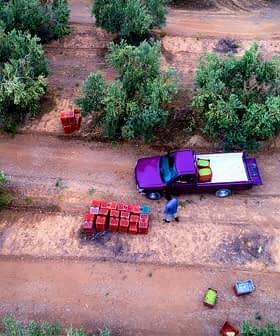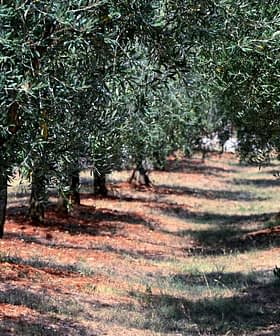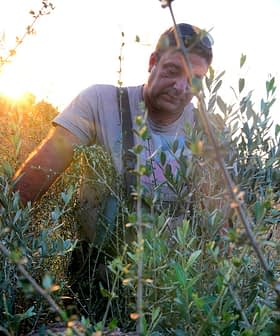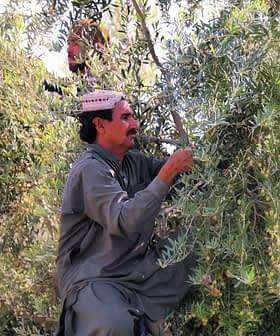Research-Focused Conference in Pakistan Showcases the Potential of Olive Cultivation
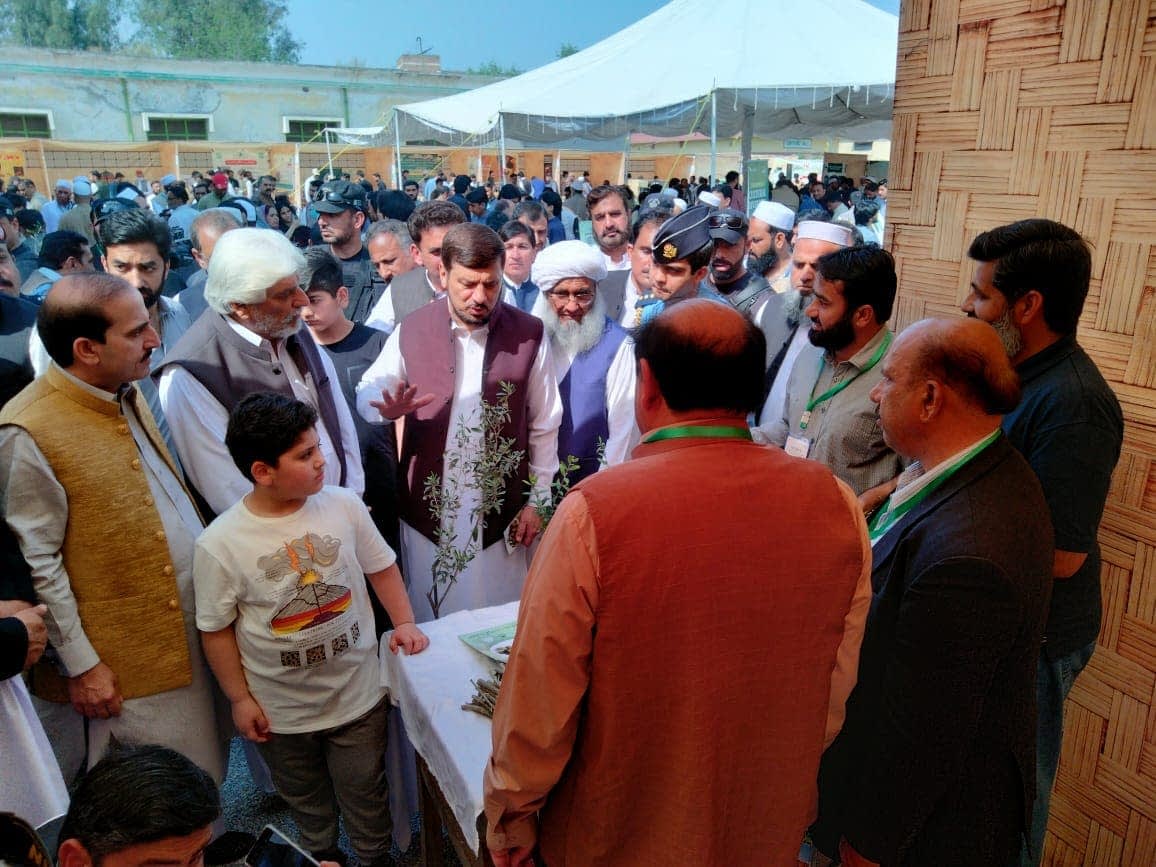
Pakistan’s third annual olive value chain conference on June 7th gathered over 35 scientists and PhD candidates to present research findings aimed at developing olive cultivation as a climate-resistant crop, improving rural livelihoods, and enhancing growing and milling technology. The conference, hosted by the Center of Excellence for Olive Research and Training (Cefort) in Chakwal, focused on integrating public and private sector efforts to improve the profitability of olive growing in Pakistan through research and fundraising, with the goal of planting olive trees on four million hectares of marginal land in the country.
More than 35 scientists and PhD candidates presented their latest research findings at Pakistan’s third annual olive value chain conference on June 7th.
The conference, which the Center of Excellence for Olive Research and Training (Cefort) hosted with PakOlive, gathered scientists, farmers and other public and private sector stakeholders in Chakwal, a small city situated 100 kilometers south of Islamabad in the heart of Punjab’s olive growing region.
We are trying to develop an olive culture. Whatever is being produced must be of good quality, and the farmer must receive a good return for what they produce.
The presentations focused on developing olive cultivation as a climate-resistant crop, bolstering cooperation among the links of the olive oil production value chain, improving rural livelihoods through olive growing and improving growing and milling technology.
Muhammad Ramzan Anser, an agronomist and the deputy project director at Cefort, told Olive Oil Times that the conference’s goal is to improve the profitability of olive growing in Pakistan through research and fundraising.
See Also:Olive Farming Is Key to Saving the Forests of BalochistanAccording to Ramzan, Cefort is doing this by integrating the knowledge and efforts of the public and private sectors. He added that the olive center also works with international partners to secure funding and expertise for new projects.
One of the organization’s main goals is to plant olive trees on four million hectares of marginal land in Pakistan, which Ramzan said helps prevent desertification and erosion.
“Olives are helping us to combat the challenges posed by climate change and also provide a good livelihood to those communities which have very limited options outside agriculture,” he said.
Pakistan hosts about 5 million olive trees planted on 17,000 hectares, with widespread olive cultivating efforts beginning in earnest in 2016. According to Ramzan, Pakistan produced 86 tons of mostly virgin and extra virgin olive oil in the 2022/23 crop year.
“If you compare the number of trees with the fruit yield, it seems very low, but that is because of the age of our orchards,” Ramzan said. “Most of them are not yet fully mature.”
He added that the production potential of already-planted groves is expected to reach 1,400 tons annually. In a 2020 interview with Olive Oil Times, PakOlive project director Muhammad Tariq said he expected production to exceed 10,000 tons annually by 2027.
Previous research from Cefort has identified the 12 olive varieties with the highest commercial potential in the country, including Arbequina, Arbosana, Koroneiki, Picual, Hojiblanca and Gemlik.
Constructing the necessary milling infrastructure has also been a significant part of Cefort’s promotional efforts. Ramzan said there are now 20 modern olive mills around the country that transform olives free of charge for farmers.
He added that Cefort also advises farmers on when to begin the harvest. Separately, a certification lab is being built in Islamabad to test the quality of the oil produced around the country.
“We are trying to develop an olive culture,” he said. “Whatever is being produced must be of good quality, and the farmer must receive a good return for what they produce.”
Due to the immense ethnic and linguistic diversity within Pakistan – more than 77 languages are spoken across the world’s fifth most populous country – Cefort has also launched social media support groups for olive farmers on Facebook and WhatsApp.
“Anyone in the country who has any questions related to pre-harvest or post-harvest operations can ask in the group and receive an answer in their native language,” Ramzan said.
He added that Cefort is also developing a mobile application allowing farmers to submit questions and receive answers on their smartphones.
As a result of investment and development of the sector, Ramzan said there are already 15 domestic brands bottling their olive oil.
However, he believes that the current macroeconomic situation in Pakistan will result in a large portion of locally-produced oils being exported rather than remaining in the domestic market.
According to World Bank trade data, Pakistan exported slightly more than $1.9 million of virgin and extra virgin olive oil to seven countries in Europe, Africa and Oceania in 2022.
The largest share of exports went to Mozambique, followed by Canada, the United Kingdom, Angola, Australia, South Africa and Tanzania.
Still, a significant trade deficit remains, with the country importing more than $6.7 million worth of olive oil in all of its fractions from Spain, Italy, Turkey, Azerbaijan, Portugal, Germany, France and Brazil.
Pakistan has been actively working to reduce its trade deficit to meet budget requirements for a $2.5 billion loan from the International Monetary Fund. The loan is needed to replenish the country’s foreign currency reserves, which are insufficient for a single month of imports.
Pakistan banned “nonessential” food and clothing imports last year to reduce foreign spending but carved out an exemption for olive oil. The country also suffers from record-high inflation, making most imported olive oils cheaper than locally produced ones.
As a result, Hazan said promoting extra virgin olive oil exports should be a strategic objective to provide more value to farmers and improve the country’s trade deficit.
“The response from the market, which we are seeing, is that in the last three years, the export of this olive oil on a pilot scale has started,” he said. “Within the next two or three years, this quality of olive oil exports will reach high-end markets.”



